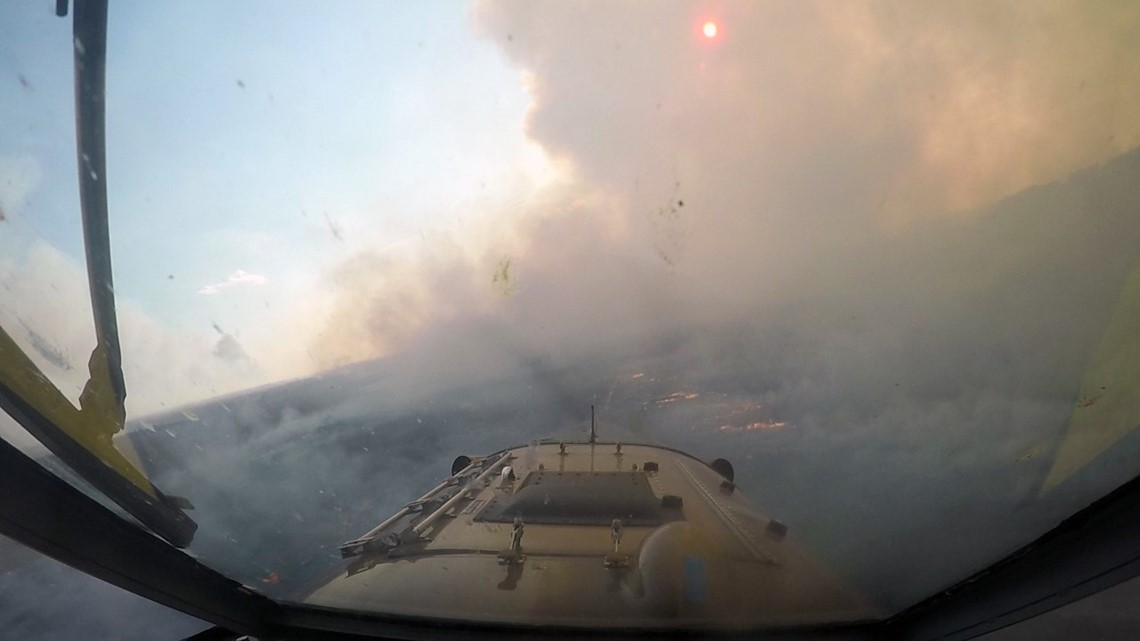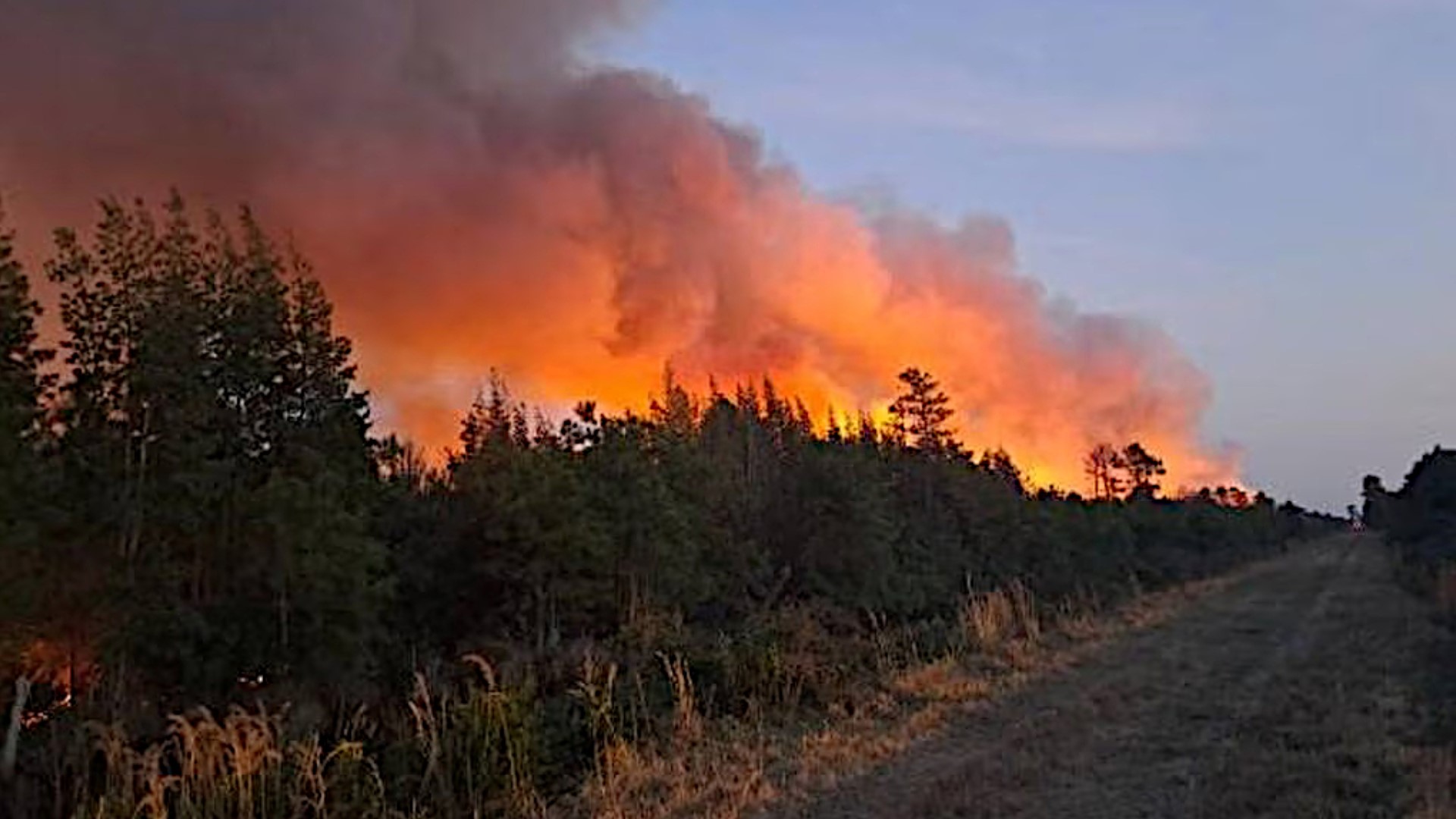COLUMBIA, N.C. — A huge wildfire has burned over 5,200 acres in northeastern North Carolina, and led to the smell of smoke wafting over a large portion of the Outer Banks.
Sunday afternoon, Forest Service officials updated the status of their efforts, as well as the estimated size of the fire. They also said the front moving through the area would shift the wind direction to the west, and that communities between Roper & Caswell may be the most impacted. They said smoke in those areas could make traveling "tedious."
According to the North Carolina Forest Service, The blaze - referred to as the Last Resort Fire - is burning on private and federal lands near Columbia in Tyrrell County, just south of the Albemarle Sound.
The fire was 34% contained as of late Sunday afternoon, and continued to produce “significant” drifting smoke.
According to a news release, there are now 66 firefighters from both the state and U.S. Fish and Wildlife working at the scene. Light rain provided some temporary relief late Saturday afternoon, with the forecast calling for more rain Sunday afternoon and evening.
They said a specialized team, referred to as a "Type 3 incident management team (IMT)," has been mobilized, and they are now in command of efforts to fight the fire.


The forestry service advises motorists to "remain alert for low visibility and to expect the smell of smoke across the region as the fire continues to burn."
They said the fire could create "tedious" conditions for drivers because of the smoke.
The Forest Service said there were no injuries reported and no structures threatened as of Sunday morning. The cause of the fire is under investigation.
The North Carolina Forest Service offers these tips on fire safety:
- Consider alternatives to burning. Some types of debris, such as leaves, grass and stubble, may be of more value if they are not burned but used for mulch instead.
- Check local burning laws. Some communities allow burning only during specified hours. Others forbid it entirely.
- Make sure you have a valid permit. You can obtain a burn permit at any N.C. Forest Service office or authorized permitting agent, or online at www.ncforestservice.gov/burnpermit.
- Keep an eye on the weather. Don’t burn on dry, windy days.
- Local fire officials can recommend a safe way to burn debris. Don’t pile vegetation on the ground. Instead, place it in a cleared area and contain it in a screened receptacle away from overhead branches and wires.
- Household trash must be hauled away to a trash or recycling station. It is illegal to burn anything other than vegetative material.
- Be sure you are fully prepared before burning. To control the fire, you will need a hose, bucket, steel rake and a shovel for tossing dirt on the fire. Keep a phone nearby, too.
- Never use kerosene, gasoline, diesel fuel or other flammable liquids to speed up debris burning.
- Stay with your fire until it is completely out.
- These same tips apply to campfires and grills as well. Douse burning charcoal briquettes or campfires thoroughly with water. Drown all embers, not just the red ones. When soaked, stir the coals and soak them again. Make sure everything is wet and that embers are cold to the touch. If you do not have water, mix enough dirt or sand with the embers to extinguish the fire, being careful not to bury the fire. Never dump hot ashes or coals into a wooded area.
- In addition to the rules above, a fire line should be plowed around the area to be burned when burning agricultural residue and forestland litter. Large fields should be separated into small plots for burning one at a time. Before any burning in a wooded area, contact your NCFS county ranger for technical advice on burning.
To learn more about fire safety and preventing wildfires and loss of property, The N.C. Forest Service advises you to go to www.ncforestservice.gov. For information about creating defensible space and a fire-resistant landscape around your home and property, visit www.resistwildfirenc.org.

